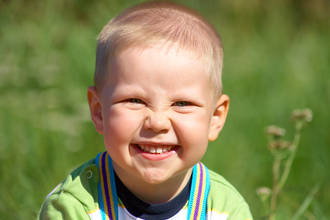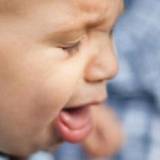Shop
01612
https://www.under5s.co.nz/shop/Hot+Topics+Articles/Health+%26+Wellbeing/Preschoolers/Does+your+child+have+ADHD.html
Does your child have ADHD?
|
The number of young children being diagnosed with ADHD (Attention Deficit Hyperactive Disorder) has increased over the last decade. So what is ADHD, and why are more children being labelled with it?
|
You might also be interested in ...
Quick guide to kids coughs
Check out our quick guide to kids coughs and coughing - common types of coughs you might come across this winter. Kids coughing is not uncommon at this time of year, but would you be able to recognise what sort of cough it is and how to treat it? Here are some of the more common types of coughs, symptoms and how you can help treat them.
8 Sleep tips for the Christmas holidays
Even babies and kids who are usually good sleepers may find it difficult to get enough sleep or settle during the busy Christmas period. So here are some useful sleep tips for the Christmas holidays to help ensure your baby and kids sleep is not disrupted during this hectic time of year.
join usJoin us on social media for all our latest news. |
sign upSign up and receive our latest newsletters. |
|







So what is ADHD, and why are more children being labelled with it?
1. What are the signs & symptoms of ADHD?
More children are being diagnosed with ADHD these days partly due to the fact that we have become much more aware of the signs and symptoms.
For a child to be diagnosed with ADHD the following three symptoms must be present:
ADHD can prevent children from enjoying every day life experiences and has a significant impact on relationships and family life.
Children with ADHD tend to lose their tempers easily. Often an ADHD diagnosis goes hand and hand with other learning disabilities such as dyslexia, anxiety, or depression.
Peers often reject these children, as children with ADHD do not behave in pro-social ways like, taking turns.
When relationships break down between adults and peers, problem behaviour can become worse because of social isolation.
2. What causes ADHD?
ADHD seems to have a neurological cause relating to brain chemistry.
It is not yet known what causes ADHD but it is thought that the parts of the brain that control attention, concentration and impulse control, work differently in ADHD children. This is most likely due to a chemical imbalance.
ADHD can run in families and certain genes can predispose the development of ADHD. Dysfunctional family environments combined with the genes predisposed to ADHD can manifest ADHD in children.
Where family environments are secure and good parenting skills are used, children predisposed to ADHD are less likely to shows symptoms.
The absence or presence of certain foods, does not cause, nor prevent, ADHD. A healthy well balanced diet, as with all children, is best.
3. How is ADHD diagnosed?
A “test” does not exist for ADHD, but a paediatrician can make the diagnosis based upon their own observations and the child’s history.
If you think your child may be affected, talk to your early childhood teacher, doctor or health professional in the first instance.
For a child to have ADHD, their behaviour should be the same at preschool or in home childcare as it is at home.
4. How is ADHD treated?
Medication and behaviour management techniques can be used to help children and families manage symptoms.
Many children with ADHD are given stimulate drugs, often Ritalin. It works by stimulating parts of the brain that control impulsiveness and attention control, so children are more able to stay focused and think before acting. Medication helps to control symptoms, it is not a cure.
The second part of treatment is to support behaviour management. Children and their families are helped to learn the best ways to manage difficult behaviours. This is sometimes called cognitive behaviour therapy.
It is thought that a combination of medication and behavioural management works best. Services such as Group Special Education are available to support young children and their whânau.
Tell your friends
Like the article you've just been reading? Click on the Refer A Friend link at the top of the page and send the details to friends who might like to read it too.More Hot Topics for you to enjoy
Source: This article has been written by Creators, a nationwide service offering quality home-based care and education. Creators are passionate about seeing every child’s unique talent being recognized and nurtured.